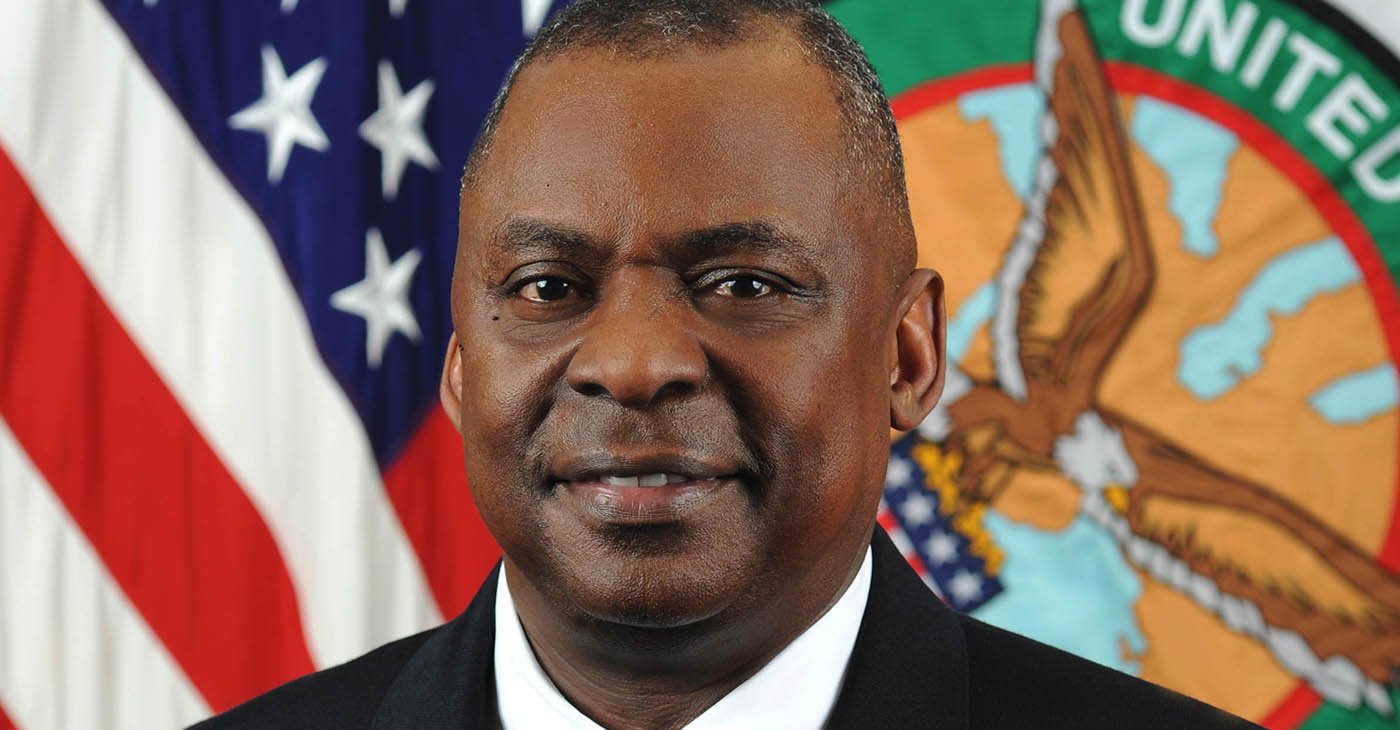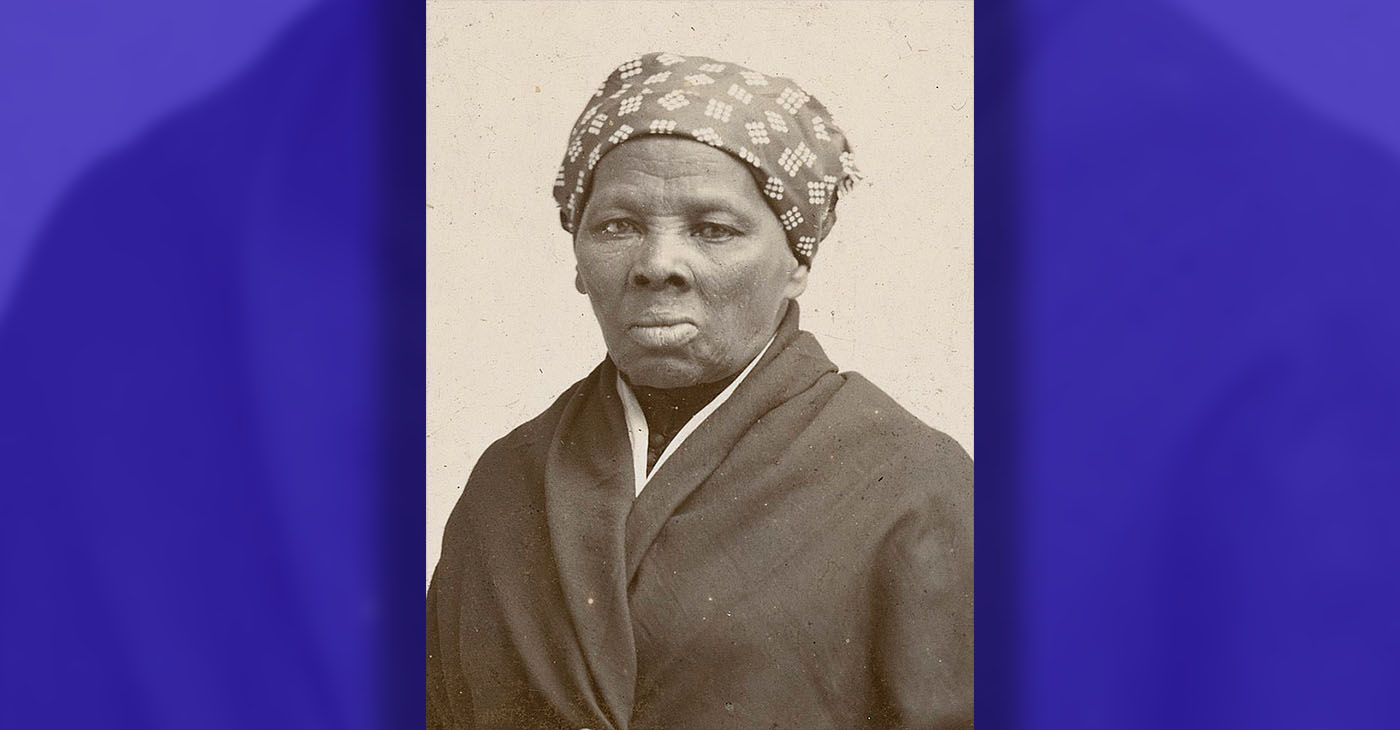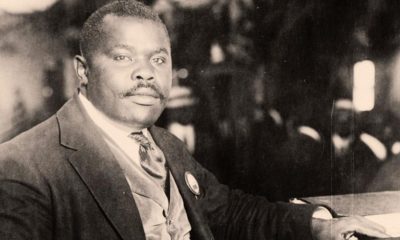#NNPA BlackPress
General Lloyd Austin Is First Black U.S. Secretary of Defense
“I pledge to fight hard to rid our ranks of racists and extremists,” said the new Secretary of Defense during his confirmation hearings,

Retired African American General Lloyd Austin is now in charge of the U.S. Dept. of Defense.
Chosen by Pres. Joe Biden, the first African American to serve in the key strategic federal government leadership role was confirmed by the U.S. Senate on January 22.
“I pledge to fight hard to rid our ranks of racists and extremists,” said the new Secretary of Defense during his confirmation hearings.
He also pledged to overturn several discriminatory bans on military service put in place by the previous administration.
The confirmation vote cleared by a 93-2 margin – Sen. Mike Lee (R-Utah) and Sen. Josh Hawley (R-Missouri) were the lone no-votes.
One day prior, the U.S. House approved a waiver to allow for Gen. Austin’s confirmation.
The decorated veteran required a congressional waiver to confirm the civilian post because he retired from active-duty service only four years ago.
Federal law requires seven years of retirement from active duty before taking on the role.
Biden and others had previously pointed to the Congressional waiver received in 2017 by Retired Marine Gen. James Mattis, who served as defense secretary in the previous administration.
“The law that we keep waiving actually exists for a good reason,” remarked Sen. Minority Leader McConnell (R-Kentucky).
“Civilian control of the military is a fundamental principle of our republic. We emphatically do not want high-ranking military service to become a tacit prerequisite for civilian leadership posts over the Department of Defense.”
Austin’s confirmation cements him as one of the most prominent members of Biden and Vice President Kamala Harris’ Cabinet.
The Secretary of Defense controls the country’s largest government agency, commanding troops worldwide and the Pentagon’s internal workings.
The confirmation also keeps with Biden’s promise to have a staff and cabinet that reflects America’s diversity.
“I know firsthand from our time together on the [United Technologies] board that General Austin will be a wonderful choice for Secretary of Defense,” former New Jersey Gov. Christine Todd Whitman tweeted.
The decorated 67-year-old has accumulated many awards and decorations, including five Defense Distinguished Service Medals, the country’s highest noncombat-related military honor, and three Distinguished Service Medals; the Silver Star, the nation’s third-highest award for valor in combat; and two Legions of Merit.
According to his biography, Austin began his career in the U.S. Army in 1975 as second lieutenant in the infantry and rose through the ranks to command troops in combat at the 1-, 2-, 3-, and 4-star levels.
Austin served in numerous command and staff positions in the U.S. and around the world.
These include Operation Safe Haven in Panama with the 82nd Airborne Division; Operation Iraqi Freedom, spearheading Iraq’s 2003 invasion as the assistant division commander for the 3rd Infantry Division; and Operation Enduring Freedom in Afghanistan as the commander of the 10th Mountain Division (Light).
In 2008, Austin returned to Iraq as the commanding general of the Multi-National Corps-Iraq during the period when the surge forces were drawing down under Operation Iraqi Freedom.
In 2009, Austin was named director of the Joint Staff at the Pentagon.
Following that assignment, Austin served another tour in Iraq as the commanding general of United States Forces-Iraq, responsible for the transition of all U.S. and Coalition military forces and equipment out of the country by the December 2011 deadline.
In 2012, General Austin served as the 33rd vice chief of staff of the Army, culminating his military career as the 12th commander of U.S. Central Command (CENTCOM) from 2013 to 2016.
As CENTCOM commander, he was responsible for military strategy and joint operations throughout the Middle East and Central and South Asia. He was also the architect and oversaw the military campaign’s execution to defeat the Islamic State in Iraq and Syria.
He retired from the military on May 1, 2016, and is now the founder and president of The Austin Strategy Group.
Austin also worked with the president-elect as vice chief of the Army staff when Biden served as vice president under former Pres. Barack Obama.
Austin would require a congressional waiver for confirmation to the civilian post because he retired from active-duty service only four years ago.
“Very good news for national security,” Retired Four-Star Gen. Barry McCaffrey stated. “Ret. Gen. Lloyd Austin is a towering figure in Armed Forces. Enormous global experience. Joint Staff and Army staff Pentagon. Very easy to deal with. Loved by the military. Silver Star Valor. West Point. M.A. Auburn. MBA.”
#NNPA BlackPress
Harriet Tubman Scrubbed; DEI Dismantled
A photograph of Harriet Tubman has been removed from a National Park Service webpage about the Underground Railroad.

By Stacy M. Brown
BlackPressUSA.com Senior National Correspondent
A photograph of Harriet Tubman has been removed from a National Park Service webpage about the Underground Railroad. Previously, the page opened with a photo of Tubman and a description that acknowledged slavery and the efforts of enslaved African Americans to escape bondage. That language is now gone. In its place are images of postage stamps and a reworded introduction that refers to the Underground Railroad as “one of the most significant expressions of the American civil rights movement” that “bridged the divides of race.” The updated version does not mention slavery. The change follows an executive order signed by President Donald Trump last month directing the Smithsonian Institution to eliminate “divisive narratives.” A review by The Washington Post found that since Trump’s return to office, dozens of webpages across the National Park Service have been edited to soften or eliminate references to slavery, racial injustice, and the historical struggles of African Americans.
On the website for the Stone National Historic Site in Maryland, mentions of Declaration of Independence signer Thomas Stone owning enslaved people were removed. Elsewhere, references to “enslaved African Americans” were changed to “enslaved workers.” A page exploring Benjamin Franklin’s views on slavery and his slave ownership was taken offline. The Defense Department also removed several webpages related to diversity and minority contributions to the U.S. military, including a tribute to Jackie Robinson’s Army service and content honoring the Tuskegee Airmen, the Navajo Code Talkers, and the Marines at Iwo Jima. Officials later said some content would be republished after public outcry. Nearly 400 books were removed from the library at the U.S. Naval Academy. The list includes Maya Angelou’s I Know Why the Caged Bird Sings, Memorializing the Holocaust, Half American, and Pursuing Trayvon Martin. Officials cited Defense Secretary Pete Hegseth’s directive to eliminate books that promote diversity, equity, and inclusion.
Private companies contracting with the federal government have begun rolling back language diversity and initiatives in response to federal pressure. UnitedHealth Group removed DEI language from its website. Goldman Sachs dropped its diversity requirement for companies it takes public and revised annual filings to reflect “developments in the law.” Bank of America replaced the term “diversity” with “talent” and “opportunity.” Deloitte instructed U.S.-based employees working with federal clients to remove pronouns from email signatures. Coca-Cola, PepsiCo, Disney, Paramount, JPMorgan Chase, Victoria’s Secret, and others have renamed or eliminated DEI programs. Some, like Paramount, cited the need to comply with Trump’s executive orders.
Target has faced financial and reputational fallout following its reversal of DEI commitments. The company has lost over $12.4 billion in revenue and faces multiple lawsuits related to its shifting policies. Rev. Jamal Bryant launched a national “Target Fast,” urging community mobilization. Separately, the NAACP and the National Newspaper Publishers Association (NNPA) initiated public education and selective buying campaigns to increase pressure on the retail giant.
“Black consumers helped build Target into a retail giant, and now they are making their voices heard,” said Dr. Benjamin F. Chavis Jr., president and CEO of the NNPA. “If corporations believe they can roll back diversity commitments without consequence, they are mistaken.”
#NNPA BlackPress
What Parents Think about Childcare Right Now
BLACKPRESSUSA NEWSWIRE — Children’s earliest years are a critical period when the foundation is built for lifelong physical health and emotional well-being

By: RAPID, Stanford Center on Early Childhood
The RAPID Survey Project, based in the Stanford Center on Early Childhood, is a program of ongoing national and place-based surveys designed to gather essential information on the needs, health-promoting behaviors, and well-being of young children and their caregivers. Our objective is to make timely and actionable data on the experiences of parents, caregivers, and young children available in an ongoing manner to support parent- and data-informed decision-making. Children’s earliest years are a critical period when the foundation is built for lifelong physical health and emotional well-being. Research shows that consistent, responsive caregiving is conducive to healthy development during these early years. We asked parents of infants and toddlers (birth to age 3) to tell us about their childcare experiences and preferences. Using responses from parents of infants or toddlers who participated in national RAPID household surveys in January 2024 and November 2024, we aim to understand the types of childcare that families with infants and toddlers use and what is most important to parents when selecting child care.
Family, friends, and neighbor (FFN) care is the most common childcare choice for families with infants and toddlers.
We asked parents of infants and toddlers questions about how much childcare they use, as well as their experiences using center-based care, home-based care, and both paid and unpaid family, friend, and neighbor (FFN) care. More than two in three (68%) parents of infants and toddlers use childcare for five hours or more per week. Among these families, and consistent with other national data, FFN care makes up the largest share of providers of infants and toddlers.
Responses from the survey show that, on a weekly basis:
—32% of parents use center-based care
—26% of parents use unpaid FFN care
—13% of parents use paid FFN care
—12% of parents use home-based care in the childcare provider’s residence
“Sometimes it is difficult to find relatives/friends who I trust and are available as sometimes their plans change.” Parent in Wisconsin
“I’m relying on family and things arise that make them unable to help. I have looked into center-based care and considered going back to work, but it will cost me more for childcare than I can make in income to pay for it.” Parent in Ohio
“I use babysitters, mostly teenagers, so their schedules are sometimes unreliable. They do their best, but they have other commitments, too. They also can’t always work during the day, which is when I need them.” Parent in Texas
Reliable access to childcare is a particular concern for many parents of infants and toddlers.
The predictable schedules and routines that are associated with stable access to childcare support the positive well-being and development of children, families, and caregivers. In their responses to open-ended questions, parents of infants and toddlers spoke about the different challenges they experience securing childcare, including issues with affordability, hours, location, and trust in their provider. As indicated by the quotes in this fact sheet, parents mentioned concerns about providers meeting the specific and intensive caregiving needs of infants and toddlers, while at the same time families navigate high costs, low availability, and inconsistent schedules. Additionally, many parents, particularly those living in rural areas, noted the limited childcare options near their home or work. This points to the barriers to reliable childcare access that families with infants and toddlers face, and these data can inform policies and programs that support families in meeting this critical need.
“In a rural area, childcare is very hard to find, and rates are not competitive because they don’t have to be.” Parent in Montana
“I had challenges finding other part-time care closer to where we live so I drive one hour twice a week for part-time care.” Parent in Louisiana
“We had to contact this provider very early on. I was maybe five or six weeks pregnant. And she happened to have a spot. If we had waited much longer, we wouldn’t have gotten in.” Parent in South Carolina
“I am currently using backup care days offered by my employer as our primary form of childcare for our younger child. In March, I will run out of days to use, and we are struggling to find an affordable option nearby that has availability when we need it.” Parent in Virginia
Trust in their childcare provider is the most important thing to families with infants and toddlers.
To understand families’ childcare needs, we asked parents what factor matters the most when selecting childcare for their infants and toddlers. We provided a list of factors to choose from for each type of childcare used. Across all types of childcare, parents of infants and toddlers are most likely to say that trust and/or comfortability with their provider is the top factor when they select child care for their family. Parents are significantly more likely to endorse trust and/or comfortability with their provider than any other factor, including affordability, availability, location, or the hours the provider is available.
Factors for selecting childcare, in order of frequency endorsed by parents of infants and toddlers:
- Trust and/or comfortability
- Affordability
- Availability
- Location
- Hours
“Finding a trustworthy and experienced caregiver who could handle our infant’s specific needs was a major concern.” Parent in New York
“Ensuring the caregiver has the necessary experience and qualifications to care for an infant adds another layer of difficulty.” Parent in Iowa
Predictable and nurturing caregiving contributes to positive early childhood development, and more work is needed to support families with infants and toddlers looking for childcare. RAPID data show that there is an unmet need among families with infants and toddlers for reliable, affordable, and trusted sources of childcare and that families are using a patchwork of childcare arrangements to find trusted sources of care for their infants and toddlers that they can afford and rely on. Parents themselves are experts in selecting the sources and settings of childcare that will best support their family and foster their child’s development, and they are placing an emphasis on selecting providers that their family trusts and feels comfortable with. These findings can inform policies and programs that address parents’ childcare concerns and experiences, so they are better supported in providing the healthy, responsive caregiving that is essential to their young children’s development.
#NNPA BlackPress
Trump Profits, Black America Pays the Price
BLACKPRESSUSA NEWSWIRE — Over the weekend, while 401(k)s crumbled and mass layoffs loomed, Trump was the main attraction at two lavish, money-making events

By Stacy M. Brown
BlackPressUSA.com Senior National Correspondent
As financial pain spreads across the nation, Black families are facing some of the harshest blows — while Donald Trump and his family throw parties, rake in cash, and dismantle protections built to ensure essential equity. Over the weekend, while 401(k)s crumbled and mass layoffs loomed, Trump was the main attraction at two lavish, money-making events: a Saudi-backed LIV Golf tournament at his Trump Doral resort and a seven-figure fundraiser at Mar-a-Lago. This all unfolded just days after Trump signed off on sweeping global tariffs — with a Sharpie now sold at his resort gift shop for $3 — sparking one of the largest market crashes in U.S. history. In just 48 hours, the S&P 500 lost $5 trillion in value. By Monday, stocks were in free fall. Analysts warned of inflation spikes that would hit everything from gas to groceries — and disproportionately impact low- and middle-income households.
But for Trump, it was business booming. Every room, including the $13,000-a-night suite, was sold out at Doral. Guests shelled out up to $1,400 for exclusive access, snapped up $550 Trump purses and $18 imported souvenirs, and dined on $130 steaks while posing for photos with Trump family members. “This is the perfect venue,” Eric Trump declared as his father bounced between luxury properties. That same day, the former president posted from his golf club: “THIS IS A GREAT TIME TO GET RICH, RICHER THAN EVER BEFORE.” For Black Americans — who already face the steepest hurdles in the economy — the timing is more than just offensive. It’s dangerous. As the markets tank and federal agencies brace for disruption, Trump is also waging war on racial equity. He’s issued orders wiping out diversity, equity, and inclusion (DEI) efforts across the federal government. That includes dismantling Executive Order 11246 — a cornerstone civil rights protection that, since 1965, has barred discriminatory practices by federal contractors.
Roughly 18% of the federal workforce is Black. Many of those workers are now in limbo, with DEI staffers placed on forced leave and entire programs frozen. Experts warn these rollbacks could erase decades of progress in hiring, retention, and advancement — not just in government, but in every sector that follows federal precedent. Trump has also threatened clean air and water protections for historically neglected Black neighborhoods and proposed privatizing the U.S. Postal Service — one of the largest employers of African Americans. As working families watch their savings disappear, their job security vanishes, and their communities come under attack, Trump and his donors raise glasses over filet mignon and $1 million checks. The disparity isn’t just stark — it’s systemic. And it’s being monetized in real-time. From his Palm Beach resort, as the country buckles under the weight of his policies, Trump made his position clear:
“THIS IS A GREAT TIME TO GET RICH.”
-

 Activism3 weeks ago
Activism3 weeks agoWe Fought on Opposite Sides of the Sheng Thao Recall. Here’s Why We’re Uniting Behind Barbara Lee for Oakland Mayor
-

 Activism4 weeks ago
Activism4 weeks agoSan Francisco Is Investing Millions to Address Food Insecurity. Is Oakland Doing the Same?
-

 #NNPA BlackPress4 weeks ago
#NNPA BlackPress4 weeks agoRev. Dr. Jamal Bryant’s Black Church Target Boycott Mobilizes 150,000
-

 Activism3 weeks ago
Activism3 weeks agoFaith Leaders Back Barbara Lee for Mayor, Criticize Candidate Loren Taylor for Dishonest Campaigning
-

 Activism4 weeks ago
Activism4 weeks agoOakland Post: Week of March 12 – 18, 2025
-

 Activism3 weeks ago
Activism3 weeks agoOakland’s Most Vulnerable Neighborhoods Are Struggling to Eat and Stay Healthy
-

 #NNPA BlackPress4 weeks ago
#NNPA BlackPress4 weeks agoRecently Approved Budget Plan Favors Wealthy, Slashes Aid to Low-Income Americans
-

 Activism3 weeks ago
Activism3 weeks agoGroup Takes First Steps to Recall District Attorney Diana Becton
























































